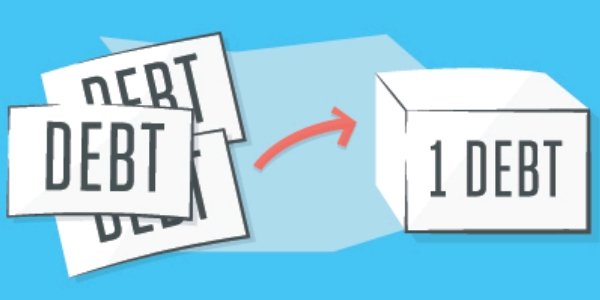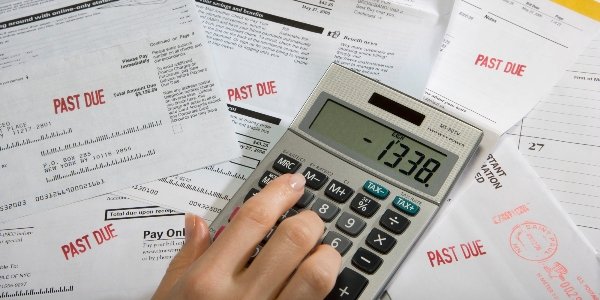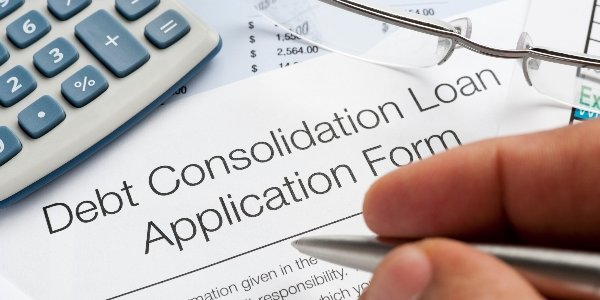Debt consolidation loans are a form of debt refinancing in which the consumer takes out a loan so that they can pay off other loans, credit card debt, an unpaid student loan, and other debts. Debt consolidation also provides the consumer with the ability to consolidate all their loans and have only one monthly payment, opposed to several.
Credit card debt and other forms of debt can quickly spiral out of control and people that find themselves with an outstanding amount of debt turn to debt consolidation as a means to handle it. Sometimes they receive a lower interest rate from a debt consolidation company, but the consumer should remember that debt consolidation does not in any way take away the debt and it is often unsecured debt. However, it can provide a better way to approach a debt settlement that doesn’t seem as chaotic or unmanageable.
What Kind of Debt Can Be Consolidated?
There are many forms of debt that qualify for consolidation including the following:
- Credit cards
- Medical bills
- Personal loans
- Payday loans
All of this debt is unsecured and, when consolidated, the consumer has the freedom of writing one check per month—instead of several—and it gets sent to one place, rather than divided among different creditors and establishments.
Benefits of Debt Consolidation
- Possibly lower your interest rates
- Protect your credit score
- Lower your monthly payments
- Give you a leg up when it comes to getting out of debt faster
Types of Debt Consolidation
There are three different types of debt consolidation that are available to consumers: debt consolidation loans, debt management plans, and debt settlement. Debt consolidation is not meant to be a quick fix to a consumer’s financial problems; rather it is a long-term debt solution that helps achieve long-term financial goals and freedom.
Debt Management Plans
If a debt management plan is the chosen avenue, then the consumer has the benefit of working with a counseling agency to help come up with payment arrangements with the different creditors. They also help locate the best bill consolidation and debt management program that fits your current situation.
Debt Settlement
In a debt settlement program, the companies negotiate with the creditors to come up with a settlement offer. This settlement offer is usually in the form of one lump sum payment and will resolve the debt most often for an amount that is less than what is owed.
When Should You Consider a Debt Consolidation Loan?
If you feel as if your interest rates are reasonable or you call and see if they give you a better rate on any new balances you incur then you can transfer your balances to one card.
Transferring balances to one credit card just takes a simple phone call to the toll-free number and wait for an answer as to whether you qualify to take this avenue of debt consolidation.
For this option to be considered, you should maintain a good payment history and remember that consolidating your credit cards may not afford you a better interest rate.
Personal loans are also a way to consolidate your debt. Approaching your friends or family may provide a better interest rate and even give them tax credits at the end of the year, but you need to have a solid payment plan in place and have the agreement put in writing. The agreement should include any late penalties or default fees, just as you see in a bank agreement.
If you take the avenue of approaching a bank or a credit union for a loan, then you may be able to get competitive pricing and rates, depending on the lender you decide on. A loan given a bank will also provide assurance of a payment schedule for the following years, one you can’t alter without negative consequences. It will allow you the time and ability to stay focused on your debt recovery efforts.
However, you must take into account your credit history and the high-interest rate that you may incur by going through a bank or credit union. You want to be sure that the payment and interest are manageable so that you do not fall into further debt in the future due to your efforts to control your already existing debt.
Debt Consolidation Misconceptions and Traps
While debt consolidation could be a good idea, in theory, you want to be sure that you are not using it as a way to hide or mask the overall problem. You want to avoid getting into more debt in the process of trying to fix your debt.
Debt consolidation should not be considered the go-to option that is going to fix everything as it is often unsecured debt. Consolidating your credit cards, for example, could max out the credit cards because it shows as new credit.
If you choose to work with a debt consolidation agent, then you want to be sure that the fees associated with these services are not too high. They can offer you advice and point you in the right direction, but ultimately it is up to the consumer to learn how to change their spending habits and behavior to begin to control their debt.
When you consolidate your debt, it will most likely lower your monthly payment, but you also want to be mindful of interest rates and how much they can go up with consolidation. Avoid these traps at all costs if possible. Debt management programs require research and time and you should carefully consider all options before making a decision.
Steps to Get a Debt Consolidation Loan
After you have carefully reviewed your finances and all options available to you, you can begin the task of obtaining the debt consolidation loan to begin solving debt problems.
- Obtain a good estimate of the amount of money you owe so you know how much to get the loan for
- Check all your finances and see what a manageable monthly payment is; this can also help determine how much you may qualify for concerning the loan amount
- Discuss your loan options with the bank. Try to qualify for a low-interest Check your credit to see where you are at on the borrowing spectrum. If you have good credit, then you can most likely qualify for a better loan option. Go to this website, it is a good resource to evaluate your credit score range.
- Once you have worked out the financial and interest aspects and discussed these options with the bank, decide on which loan you want and apply for it
- If approved, be sure to use the money to pay off the debt immediately. Do not squander the money on other things. The purpose of the debt consolidation loan is to fix the financial hole you have fallen into; do not lose focus.
- Once you use the money to pay your outstanding debts, it is time to focus on repaying the full loan amount. Do not make late payments and be sure that your monthly payment arrangement is manageable
- Once you complete these steps, don’t incur more debt. You do not want to fall back into old habits that will put you in this situation a second time. Be mindful of your budget and act per your financial limits
While there are several pros and cons to obtaining a debt consolidation loan, you should weigh the benefits and rewards against the cons of the loan. If you focus and stick to the plan, then debt consolidation could be that first great step toward reaching financial freedom, security, and stability. You could essentially be debt free and walk out of the experience with new knowledge about debt management and how to avoid making the same mistakes again.



